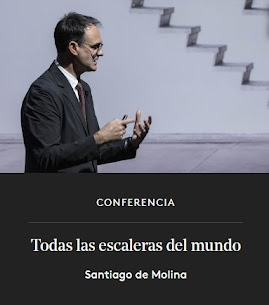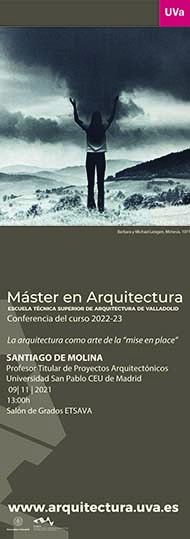Bajando en el scroll de la pantalla, y ante nuestros ojos, vemos pasar la misma y repetida imagen. Fuera de nuestro alcance se van quedando progresivamente las obras maestras menores, los matices de sus plantas y las rarezas del gusto de los frikis y de las minorías. Spotify, Netflix o Pinterest suprimen sistemáticamente la periferia y los bordes. El turismo y la posibilidad de descubrir obras limítrofes guiados por un algoritmo, dejarán de lado la visita a los palazzi de Alessandro Specchi o al exotismo de William Chambers. El discurso hegemónico se vuelve entonces de un imperativo dictatorial. Pronto Robert Smythson será corregido como Smithson. Ya ni Philibert Delorme merecerá el calificativo del mayor de los arquitectos franceses del siglo XVI… Ni siquiera si el número de frikis se vuelve considerable, es decir, rentable, tendrán cabida en el top ten de turno Albert Laprade, Elizabeth Wilbraham, Rodolfo Fioravanti o Guillaume Gillet. Tal vez la Wikipedia sea el refugio. O ese viejo invento, ya poco visitado para su fin original, que fueron las bibliotecas.
Cuando el mundo de la diversidad celebra prácticas que enfatizan la importancia de la diferencia en la creación de lazos de solidaridad, encarnación y deseo, tal vez el reivindicar los márgenes culturales sea un sueño que languidece ante la catástrofe climática y el pensamiento posantropocéntrico. Sin embargo, toda reivindicación que no contemple el cuidado de esas minorías del pasado, minorías sin voz, es peor que una criminal estafa de Ponzi: es puro colaboracionismo con el exterminio de la memoria.
Scrolling down the screen, before our eyes, we see the same repeated image passing by. Out of our reach are progressively left the lesser masterpieces, the nuances of their plans, and the quirks of the tastes of geeks and minorities. Spotify, Netflix, or Pinterest systematically suppress the periphery and the edges. Tourism and the possibility of discovering border works guided by an algorithm will leave aside the visit to the palazzi of Alessandro Specchi or the exoticism of William Chambers. The hegemonic discourse then becomes a dictatorial imperative. Soon Robert Smythson will be corrected as Smithson. Not even Philibert Delorme will deserve the qualification of the greatest of the French architects of the 16th century... Not even if the number of geeks becomes considerable, that is, profitable, will Albert Laprade, Elizabeth Wilbraham, Rodolfo Fioravanti or Guillaume Gillet have a place in the top ten of the moment. Perhaps Wikipedia is the refuge. Or that old invention, now little visited for its original purpose, which were libraries.
When the world of diversity celebrates practices that emphasize the importance of difference in creating bonds of solidarity, embodiment, and desire, perhaps claiming cultural margins is a dream that languishes in the face of the climate catastrophe and post-anthropocentric thinking. However, any claim that does not contemplate the care of those minorities of the past, voiceless minorities, is worse than a criminal Ponzi scheme: it is pure collaboration with the extermination of memory.










































































































No hay comentarios:
Publicar un comentario